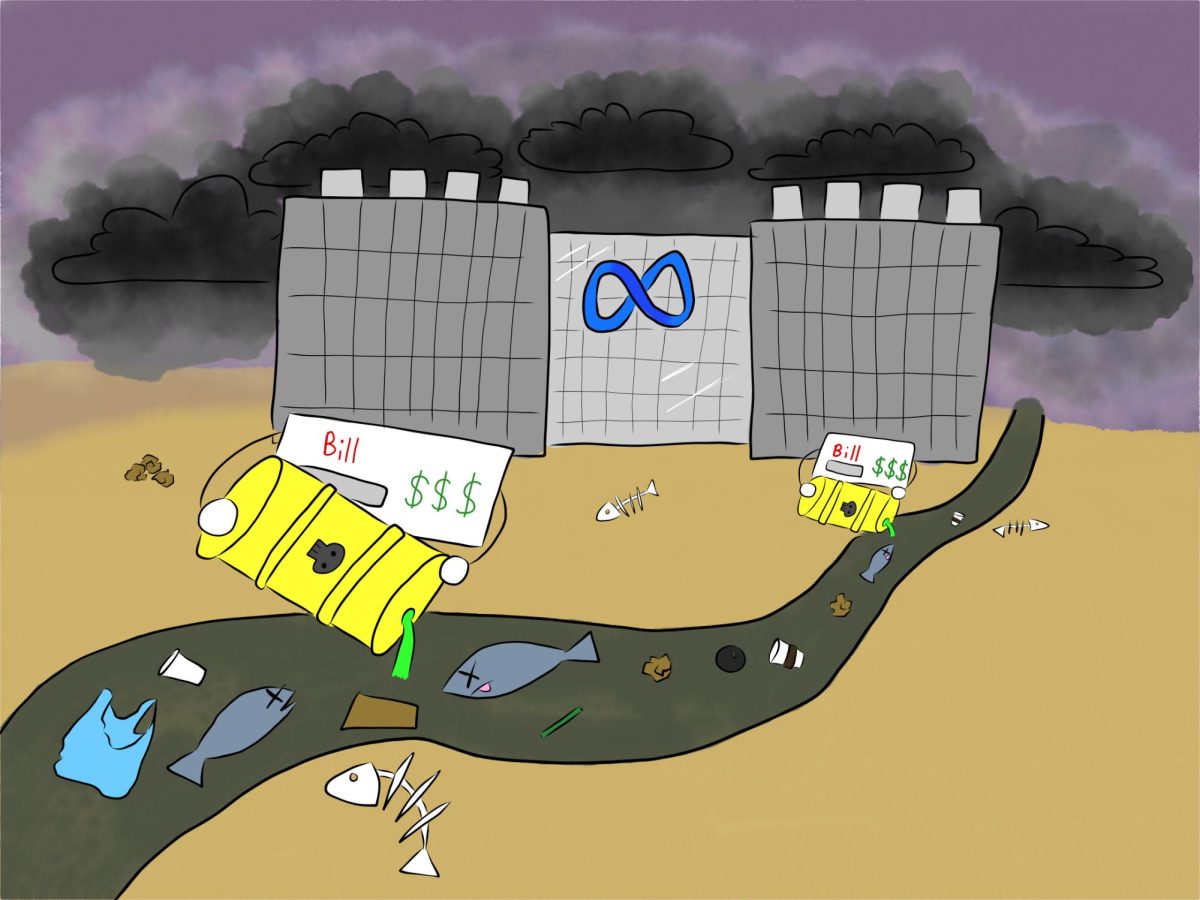As we enter an age of ever-increasing reliance on AI programs for help with schoolwork, project brainstorming, or even for companionship, large technology corporations like Meta, OpenAI, and others have begun building expansive data centers to store the infrastructure needed to support these AI systems.
One of the newly announced data centers, slated to come online in 2026 under the name “Prometheus,” is set for construction in New Albany, Ohio. It aims to be the nation’s highest-capacity data center, capable of powering Meta’s various next-generation AI programs.
Concerns begin to arise, however, when you consider the bad reputation these data centers have already earned for themselves—especially when it comes to the health of nearby communities.
In cities like Memphis, Tennessee, Elon Musk’s “Colossus” data center, which powers programs like Grok and xAI, has been linked to rising air pollutant levels. These levels have caused health concerns for nearby residents, particularly vulnerable groups like children and seniors.
In a more local example, the recent boom in data center investments here in Ohio has been linked to increased electricity and water bills in the communities where they’re built. This is because these data centers rely on massive amounts of these resources to keep their systems running smoothly.
The Prometheus data center promises to be even bigger and more expansive than these prior projects, being touted as an “AI supercluster” in a Facebook post by Mark Zuckerberg, Meta’s CEO. This is deeply concerning because it means the impacts on the communities surrounding Prometheus are likely to be just as bad, if not worse than what’s been seen in cities like Memphis.
While an on-site power plant is confirmed to be under construction to help power the data center, it alone would not produce enough energy to keep the site running, and with Meta not answering The Columbus Dispatch’s questions about potential stress on local infrastructure, concerns for the health, safety, and economic stability of the communities living near Prometheus should be at the forefront of all conversations.
At these other data centers, these corporations have shown that the communities around them are not their primary concern. If left unchecked, they will take your water, electricity, and even your clean air to power AI systems.
So, whether you’re using ChatGPT on your homework or you’re talking to Google’s Gemini AI like a new best friend, be aware that the AI systems you’re using everyday for these small tasks you could do yourself require massive, resource-intensive data centers like Prometheus to continue functioning, and that these data centers have horrible, real-world impacts on the communities that surround them.
Shelby Born is a Columnist. Contact her at [email protected]


